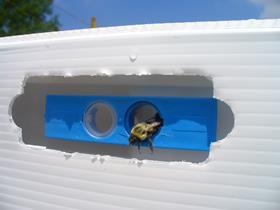
Bee Vectoring Technologies International (BVT) has announced that the US Environmental Protection Agency (EPA) has approved Clonostachys rosea CR-7 for use as a fungicide on commercial crops.
CR-7 is the first registered active ingredient for the Canadian-based company and the first active ingredient approved by the EPA for application via bees, known as 'bee vectoring', in which BVT is a global leader.
Sold under the brand name Vectorite with CR-7, the product is labeled for numerous high-value crops, including strawberries, blueberries, sunflowers and almonds.
With EPA approval, BVT is positioned to officially launch and begin to generate revenue with Vectorite with CR-7, starting with this year’s autumn and winter blueberry and strawberry season in the US.
The registration permits BVT to make positive crop protection claims when selling Vectorite with CR-7.
“Not only is this a critical milestone for BVT in terms of the commencement of scalable commercialisation and revenue, but it represents a groundbreaking shift in how plant care products can be applied,” said Ashish Malik, CEO of BVT. “By using commercially reared bees to deliver biological products, growers can protect crops, increase crop yields and enhance their sustainable growing practices by reducing the use of chemicals and other costly and increasingly scarce resources including water, fuel and labour.”
BVT is pursuing regulatory approval from other key countries and, because the EPA serves as an affirmative model for regulatory agencies outside the US, these review processes should move faster and more easily.
“According to industry statistics, to establish the high levels of safety and efficacy required to bring a new crop protection product to market costs, on average, more than US$280m and 11 years of internal research and development, university crop trials, and grower demos,' said Michael Collinson, chairman of the board of directors for BVT. 'This registration is a valuable and substantial asset for BVT, and brings considerable credibility within the industry.
“The BVT team has succeeded in developing a novel and effective alternative solution to traditional chemical pesticides and has done so at a fraction of the average industry cost,' he added. 'We are incredibly pleased to have accomplished this feat and are both proud and excited to put the BVT solution into the hands of farmers in the US, and are looking forward to future approvals in major agricultural regions around the world.”



